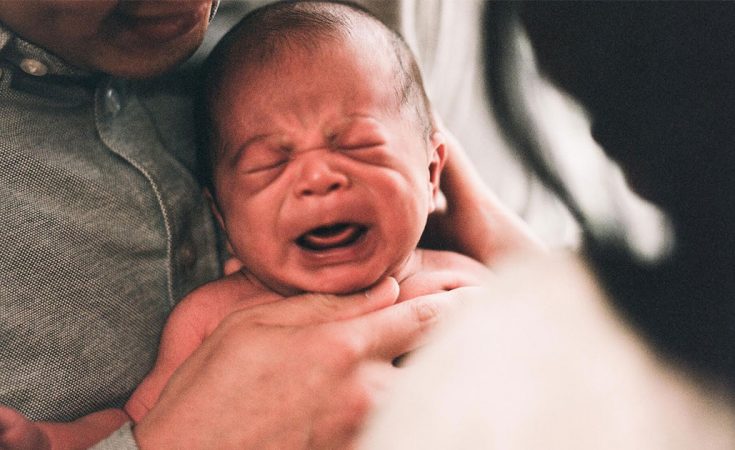
I want to start by naming some of things that were told to me by medical professionals, lactation consultants, sleep expert authors, Dr. Google, and other well-intentioned people during pregnancy and after giving birth:
-
Breastfeeding baby exclusively is recommended for the first 6 months
-
Don’t let newborn nap more than 3–4 hours max
-
Try to get at least 5 and a half hours of uninterrupted sleep a day
-
Never leave your baby alone
-
Try not to let baby sleep on you
-
Try to put baby down to sleep in crib when they’re sleepy but awake
-
Always burp baby after feeding and try to keep them upright for 15 minutes afterwards
-
Always put baby to sleep on their back
-
Don’t offer a pacifier or bottle for the first 3 weeks to establish your milk and to avoid nipple/bottle confusion
-
Don’t pump for the first 3 weeks to avoid having too much supply/engorgement
-
Don’t forget to do tummy time daily
-
Make time for you and your partner
-
Sleep when the baby sleeps
-
Eat healthy
-
Reach out for support
-
Okay, see you in 6–7 weeks for your check up
To say that maternal mental health support and general postpartum follow up care is lacking is an understatement. During my stay at the hospital, I had a 5 minute phone conversation with a social worker who breezed through resources offered, what to expect, and ended the call by telling me to remind my husband to be supportive of me in this time. When I asked if she wanted to talk to him directly to tell him that (eyeing him across the room), she said “no…that’s okay, just be sure to remind him.”
What I’ve learned is that much of the focus postpartum is laser pointed at your newborn (which is great for baby’s health!) and much less so on the mother. This makes for a lonely and confusing experience to navigate. I remember googling late in the night about my own perineal pain and what was “normal.” I had no idea if my stitches were healing, what was going on with my emotions, and how to find the support I needed. This is truly ironic because I am a mental health professional, and in theory should know where to find the help! In my defense, I didn’t know exactly what I would need before giving birth…
And being a recovering perfectionist, of course I wanted to do it all “right.” I had unknowingly placed on myself pressure to be a “great” mother. This didn’t allow for me to lean into my own maternal instincts and parse through the recommendations to find what worked for me and my family. If some items on the list above seem contradictory or impossible to do at the same time, that’s because they are.
Perfectionism snuck itself into the beginning of my mothering journey without me even knowing it. It was there when I expected myself to be good at something I had literally never done before. It crept in when I was hard on myself for not knowing my baby’s cries or not yet knowing how to soothe my baby. It was there when I thought there was something wrong with me for not being nothing but happy about being a mom. It watched as I questioned my competency as a mother and whether I could provide what was “best” and recommended for him. “Perfect mothers don’t exist,” I have to keep telling myself.
While I know that cognitively, I somehow still strived for that in my mind, making me feel more like I’d failed terribly. I thought to myself, what mother wouldn’t feel happy about being a mother, for even a second?

Becoming a mother put me face to face with some of my deepest fears- becoming unworthy if I let myself stop achieving, performing, being excellent, being efficient, bringing value to the table. I myself had adopted the narrative society has placed on mothers- that being a good mother is the de facto expectation and a role to be filled with no complaints. I discounted the hard work I was in fact doing — tending to my baby’s every cry, breastfeeding as often as I could (through the pain and all), never letting him sit in a dirty diaper, keeping a bili blanket (for jaundice) on him for 24 hours straight, squeezing in loads of laundry with only one hand free, etc.
People don’t have much forgiveness or grace for mothers that make mistakes. Or mothers that are having bad days, or exhausted mothers that are at their wit’s end at 2 am when baby is fed, changed and coddled, yet inconsolable, or mothers that express disliking some part of their role. And sprinkle on that the work being thankless and deeply undervalued. Let’s just look at our state and (lack of) national maternity leave policy for starters.
I’ll admit I didn’t have that grace for imperfection myself, even though in my rational mind, I disagreed with it. I believe moms deserve way more credit and appreciation than they get, and yet I sat there judging myself, not giving myself credit, wishing I were elsewhere, wishing I were “more productive” (hence undervaluing loads of work I was doing in my new role), and harboring feelings I’m not proud of.
I shamed myself for feeling anything but happy about my experience. What I did feel is sadness, resentment, grief, loss, irritability and longing bubbling up to the surface, with nowhere to share it, for fear of being a bad mother. I felt guilty for not “enjoying” motherhood 24/7, for not just being happy I get to be a mother, for wanting things, for missing parts of my life, and for not feeling content “just” being a mom. On top of it all, being in COVID-19 times, I had anxiety about having anyone over to visit and even had family members (my mom included) wear masks around the baby at all times. This amplified the loneliness I already felt and made it hard for me to connect to others about my experience.
I now know it’s okay to feel all these things. I’m a human being too, with wants and needs. I was a person before being a mother and taking on this new role comes with a huge learning curve and growing pains. I also know what baby blues are, intimately. (Did you know 80% of new moms have baby blues?) In the midst of becoming a mom, I’d forgotten to be compassionate to myself, something I work on with my clients all the time!
Motherhood is all encompassing, especially when your baby is a newborn. It makes sense for it to be overwhelming, particularly if you’re in pain physically, sleep deprived, undergoing the biggest life transition, all while having to keep a fragile tiny human being alive, fed, and happy. I’m thankful for my therapist (who I finally reached out to after sitting in my shame for weeks) for validating these complex feelings and holding space for me to sort it out and feel like a normal human being. Turns out I’m not defective for what I was feeling and thinking!
I’d be remiss if I didn’t shout out my own mom for nursing me back to life, being a kick-ass Grandma to my baby, and showing me a loving side of her I never truly appreciated or saw fully until I became a mother.
So far, I’ve already felt a profound loss of freedom, paired with sacrifice. This is the sacrifice my mom has been trying to tell me about for years.
I didn’t understand it until now. Being a mother is giving almost all of yourself. It takes before it ever gives back. And even then, we don’t know how it’s going to turn out or where our efforts will lead to. That’s a big adjustment if you’re used to taking care of yourself, making careful plans, or if you felt a sense of purpose, order and balance in life and relationships before the baby. All of that gets disrupted in an instant and it makes sense why one might claw at holding on to parts of life pre-baby (disclaimer- I’m talking about me).
I scribbled in my journal one day, ‘I was a whole person prior to mother. Where does that person go?’
Is there still room for all my other parts?
These are the questions that bounced around my head while sobbing in my rocking chair, holding my crying baby, wondering why I felt the way I felt.
After surviving the first month, I believe there is room for it all. Being a mother isn’t a goodbye to all those other parts of me, but it’s a see you later. I may never be as quick or efficient, but maybe that’s the point. Maybe I’ve been so enslaved to capitalism and work that I’ve forgotten how to not “work” or be at rest. Or be at peace with solely being a mom on mat leave. Side tangent — I wish they would call mat leave something else, because it’s truly not a leave or vacation of any sorts. The language in itself downplays the role of parents and makes it seem like you’re leaving your “real work.”
In reality, it’s all work, even if society doesn’t weigh it the same.
My new game plan for the rest of my “leave” is to try to be as present as I can with my baby, instead of thinking of all the other things I could be doing, trying to multitask, wishing I were “working,” or longing for my old life. And to truly give myself grace and permission to feel all my feelings, even if it is longing for the past or some of the “uglier” feelings. I tell myself, “I can love my baby, and I can dislike parts of motherhood.”
I’m also on the hunt for a solid postpartum support group.
The fact that I’m able to sit here writing this out, while my baby sleeps in his bassinet (a win on any day!), is proof that it does (in my humble opinion) indeed get better. While I wish I had more guidance on how the newborn phase would go, I’m grateful to have made it out the other side of the dark tunnel I felt stuck in. I write this as a reminder to myself that things can change, situations can improve and perspectives can shift- minute by minute, day by day, week to week.
And so my hope is that for any other prospective, new, or seasoned moms, me sharing my truth helps you feel less alone in your experience. It turns out I’m not alone, and neither are you.
There’s no right way to navigate this new road. We can only learn from the day prior and keep plowing forward, letting it unfold and doing our personal best each day, whatever that may be.
As our baby grows, so do we.
If you’re doing the thing of mothering, you’re already good enough.
After all, mothers are human too.


































